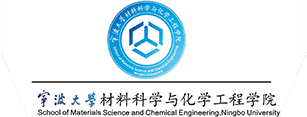Time:9:30, Mar.17,2025
Venue: Conference Room 1225, No.1 Laboratory Building, North Campus
Lecturer:Prof. Yao Lin, University of Connecticut
Lecturer Introduction:Yao Lin is a Professor of Chemistry Department and Polymer Program at the Institute of Materials Science at University of Connecticut. He received his Ph.D. in Polymer Science and Engineering from University of Massachusetts, Amherst in 2005. After completing his George W. Beadle postdoctoral fellowship at the Argonne National Laboratory and the University of Chicago in the field of biosciences and chemistry, he joined the UConn faculty in late 2008. His research focuses on applying the biological concepts to the synthetic and hybrid macromolecules, for development of new functional materials with desired collective properties.
Lecture Introduction:Polypeptides—the synthetic analogs of natural proteins—have garnered extensive interest in both fundamental research and applied development. Recent advancements in auto-accelerated ring-opening polymerization (ROP) of amino acid N-carboxyanhydrides (NCAs) have enabled the large-scale synthesis of high-molecular-weight polypeptides, offering unprecedented control over composition and architecture in random and multi-block copolypeptides. However, bridging this molecular versatility to practical forms and targeted mechanical properties—such as hydrogels, thin films, or fibers—remains a central challenge. In this presentation, I will discuss our recent strategies to regulate polypeptide interactions and hierarchies using biologically inspired design principles combined with auto-accelerated ROP–NCA approaches. Two key areas of innovation will be highlighted: (1) employing random copolypeptides to form supramolecular filament-based hydrogels with tunable viscoelasticity, and (2) developing a solvent-free route to fabricate silk-like materials directly from multi-block copolypeptides. I will also share our latest progress on realizing keratin-like, strain-induced hardening at elevated temperatures in block copolypeptides, underscoring the potential for biomimetic polypeptide systems in advanced material applications.



